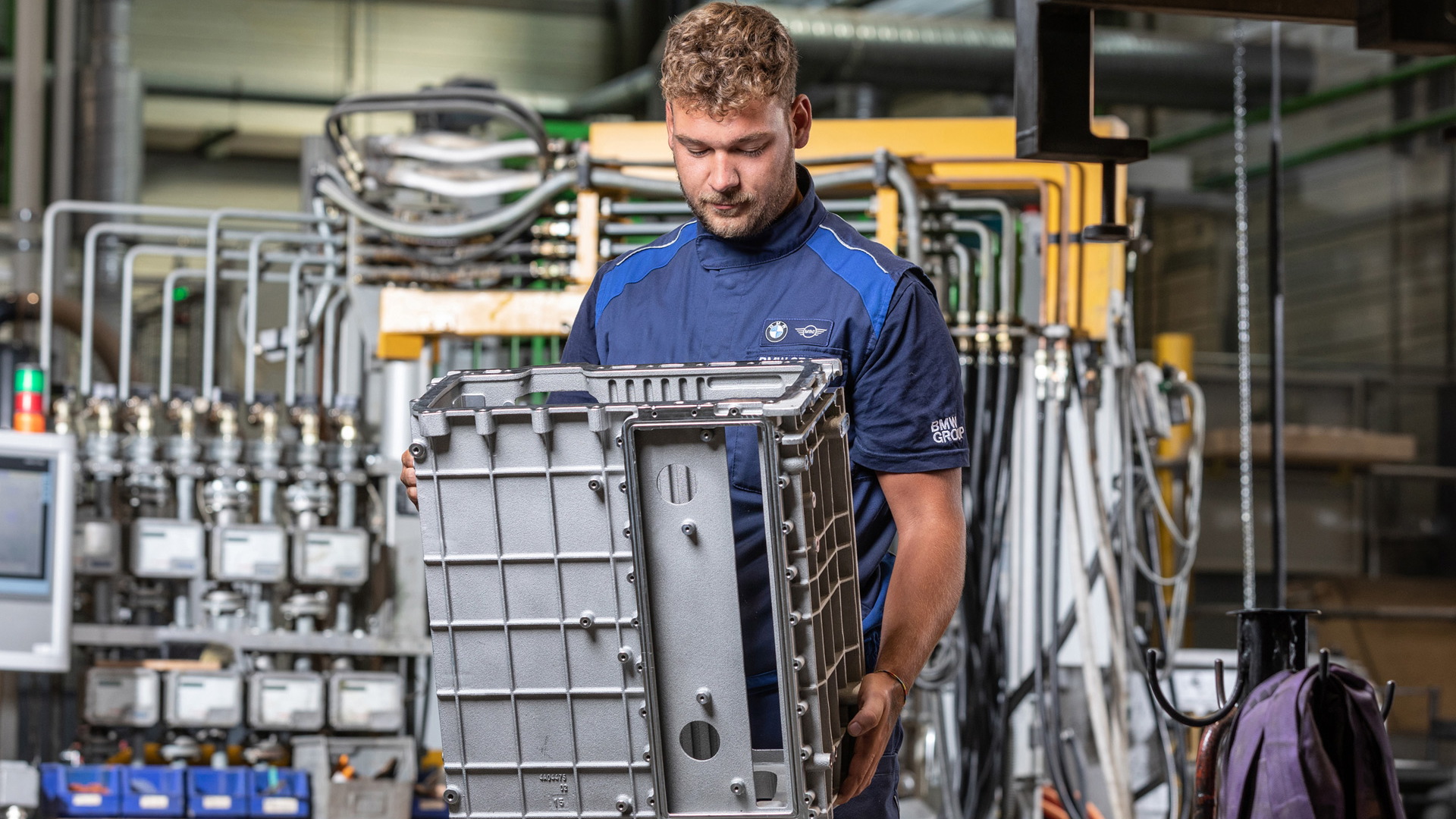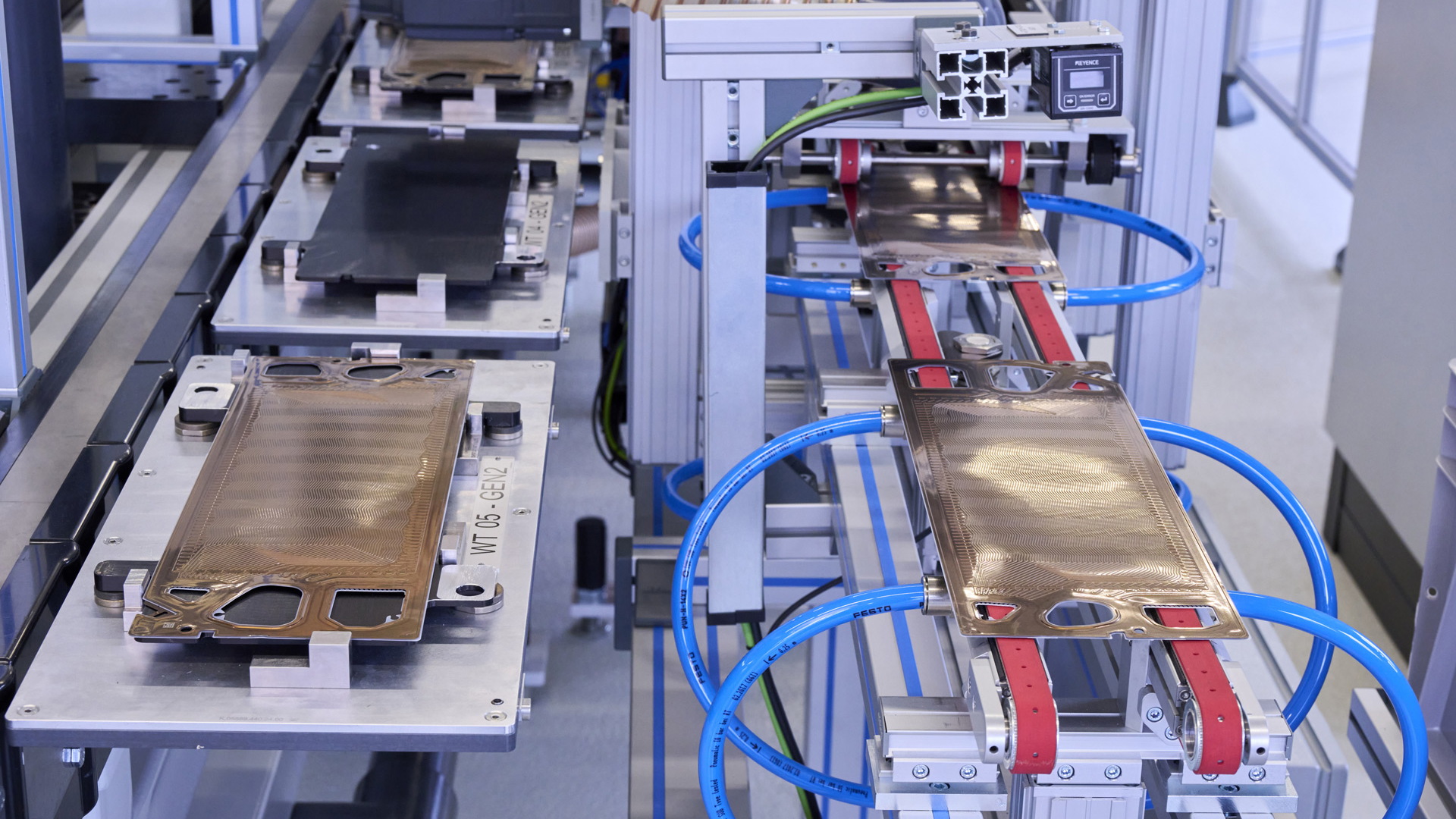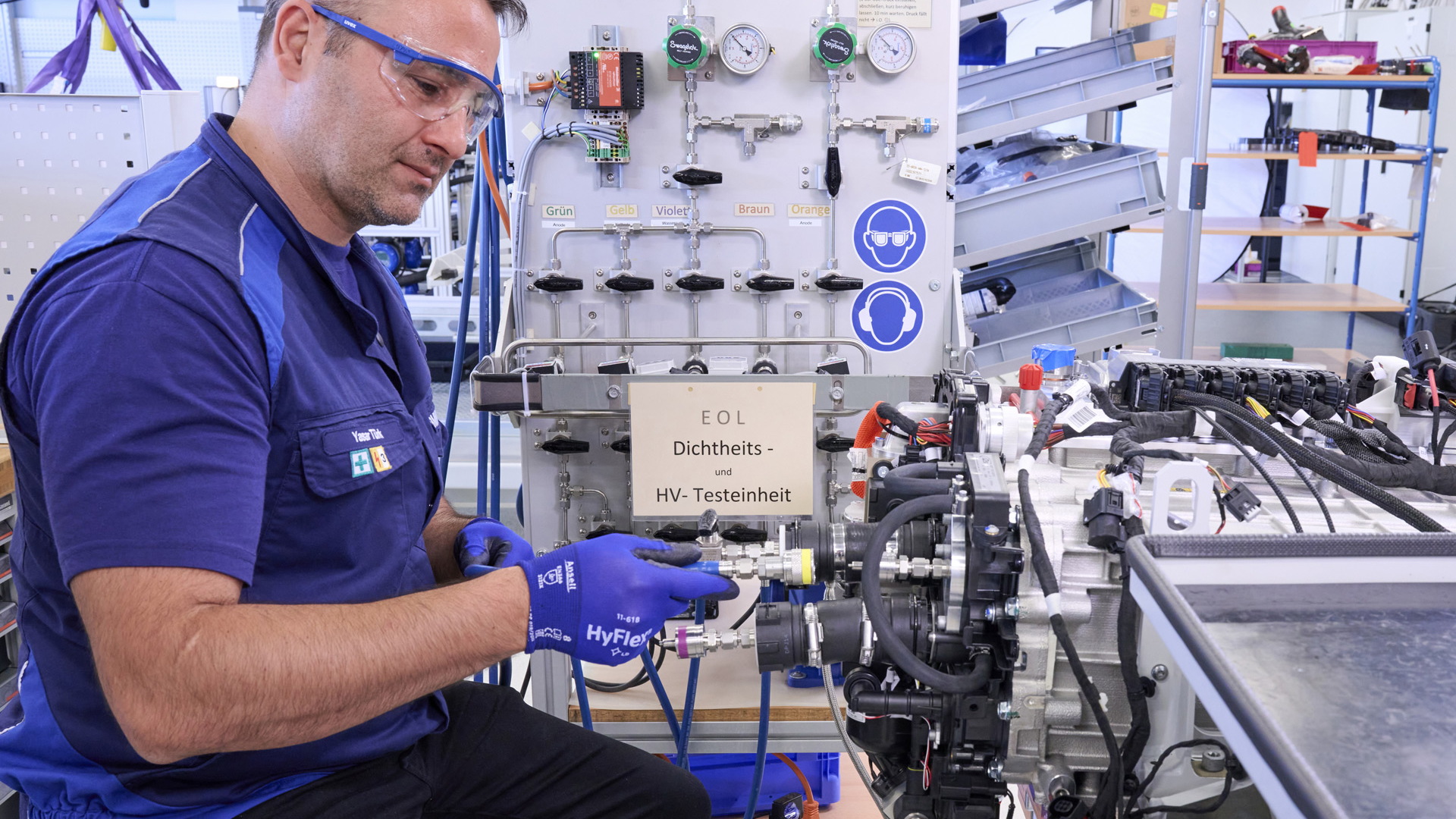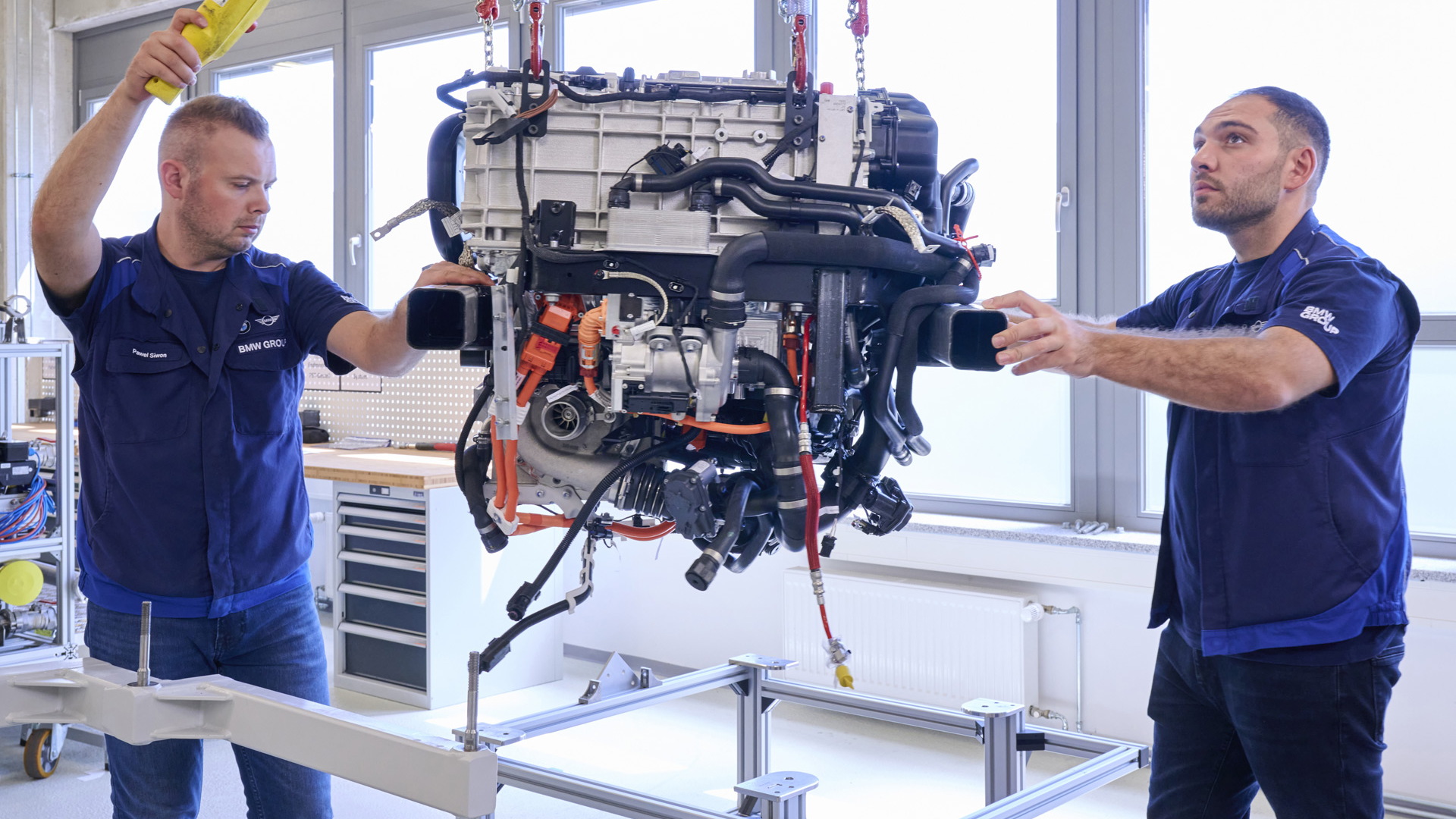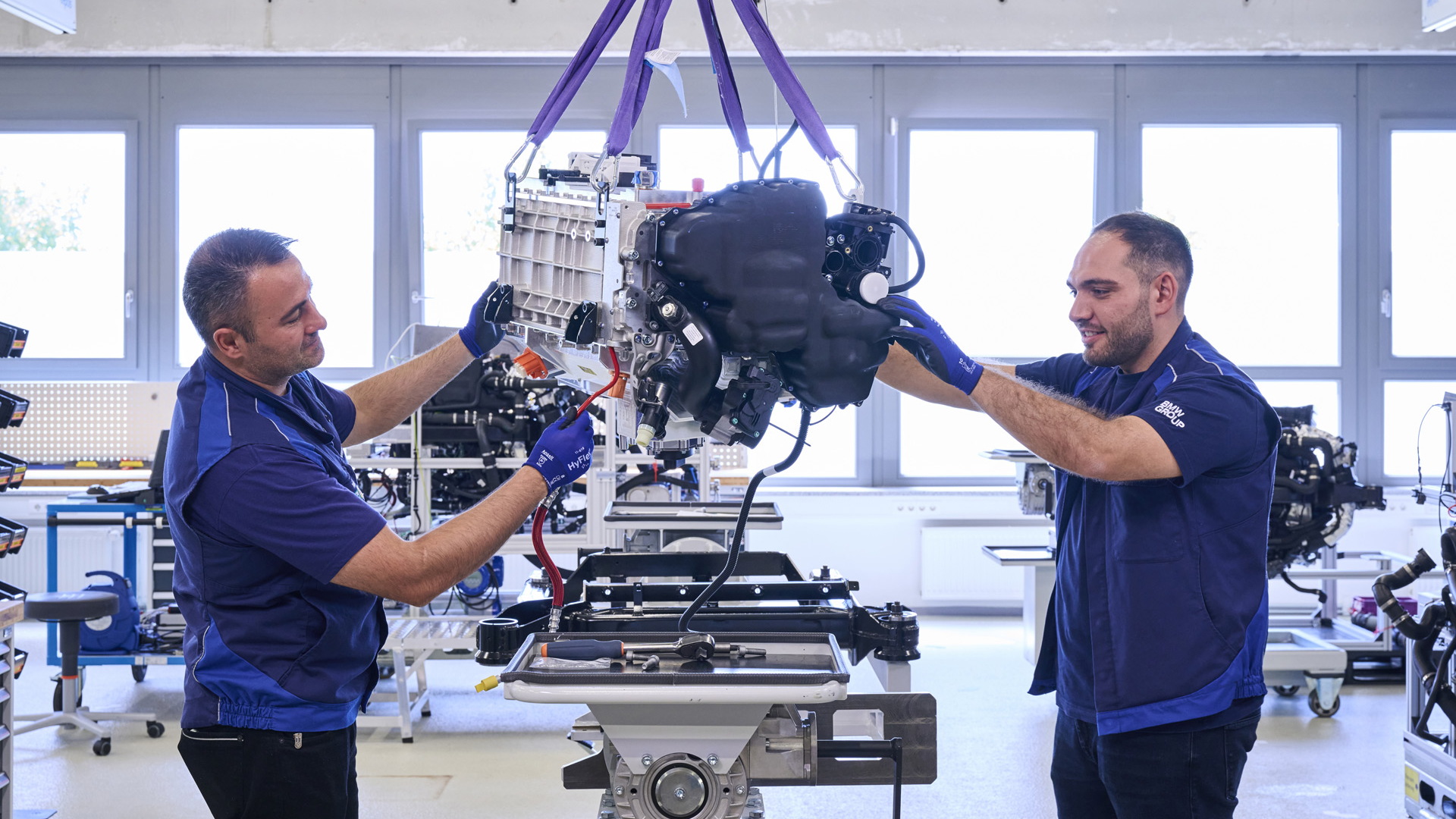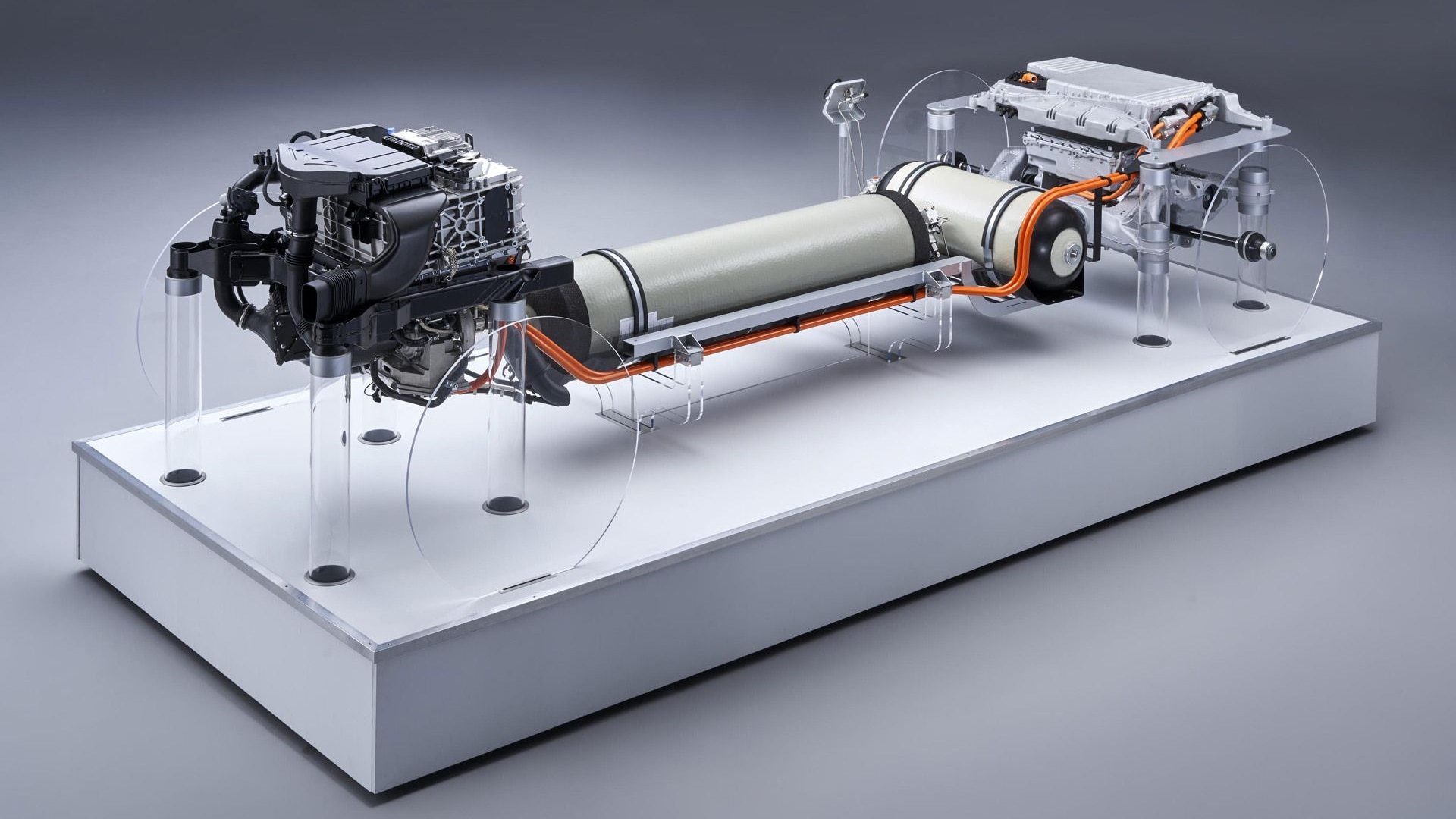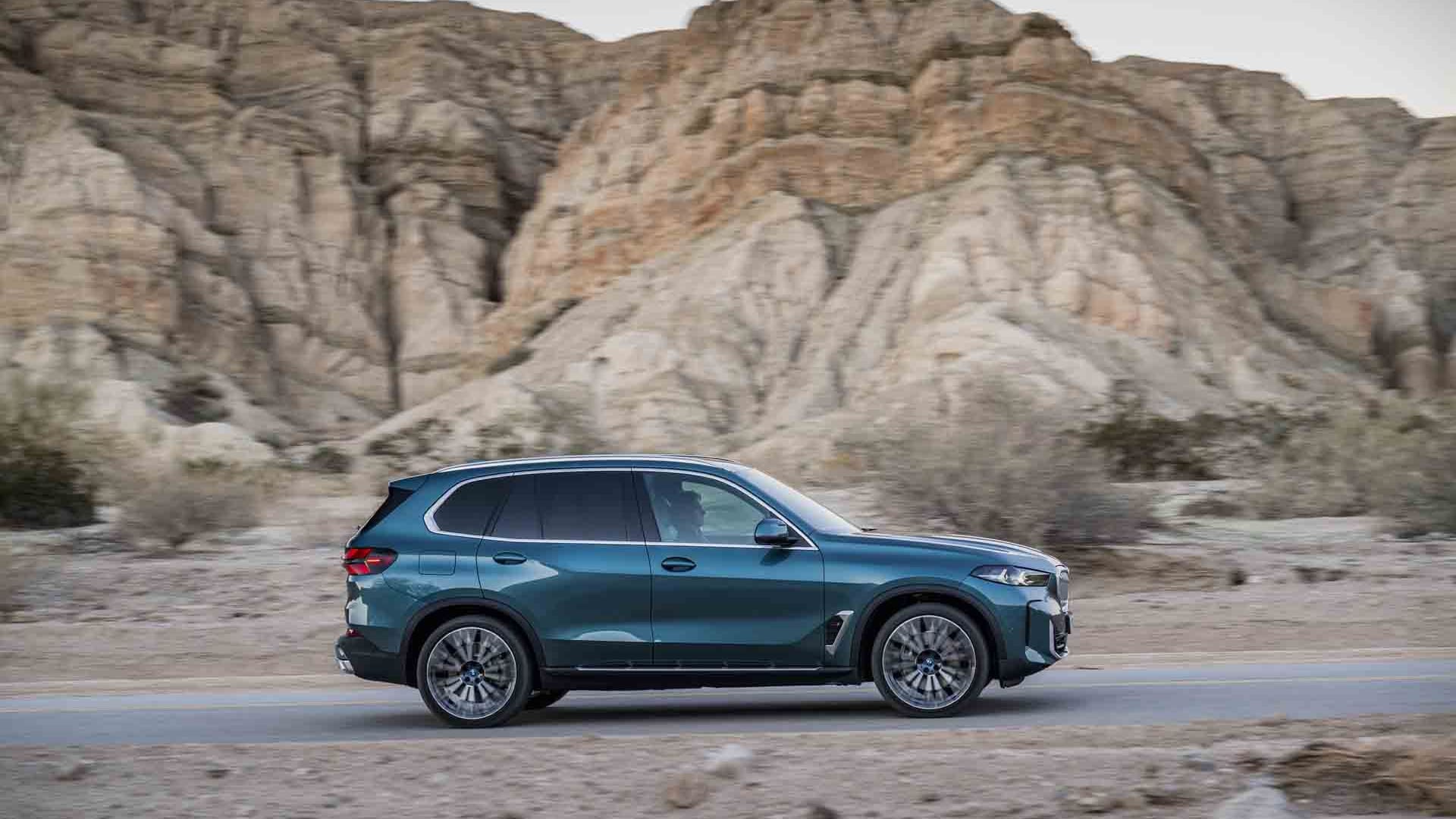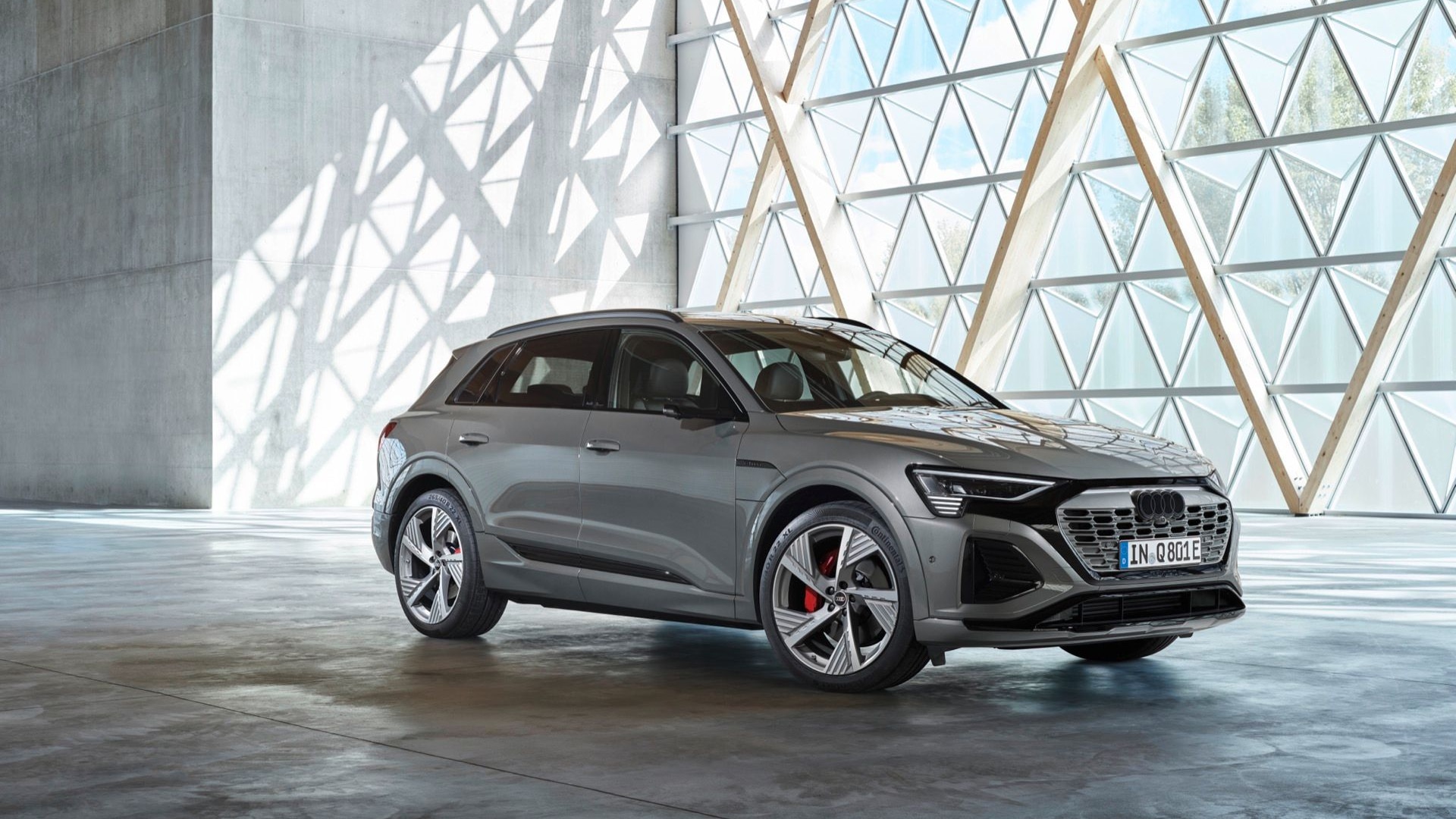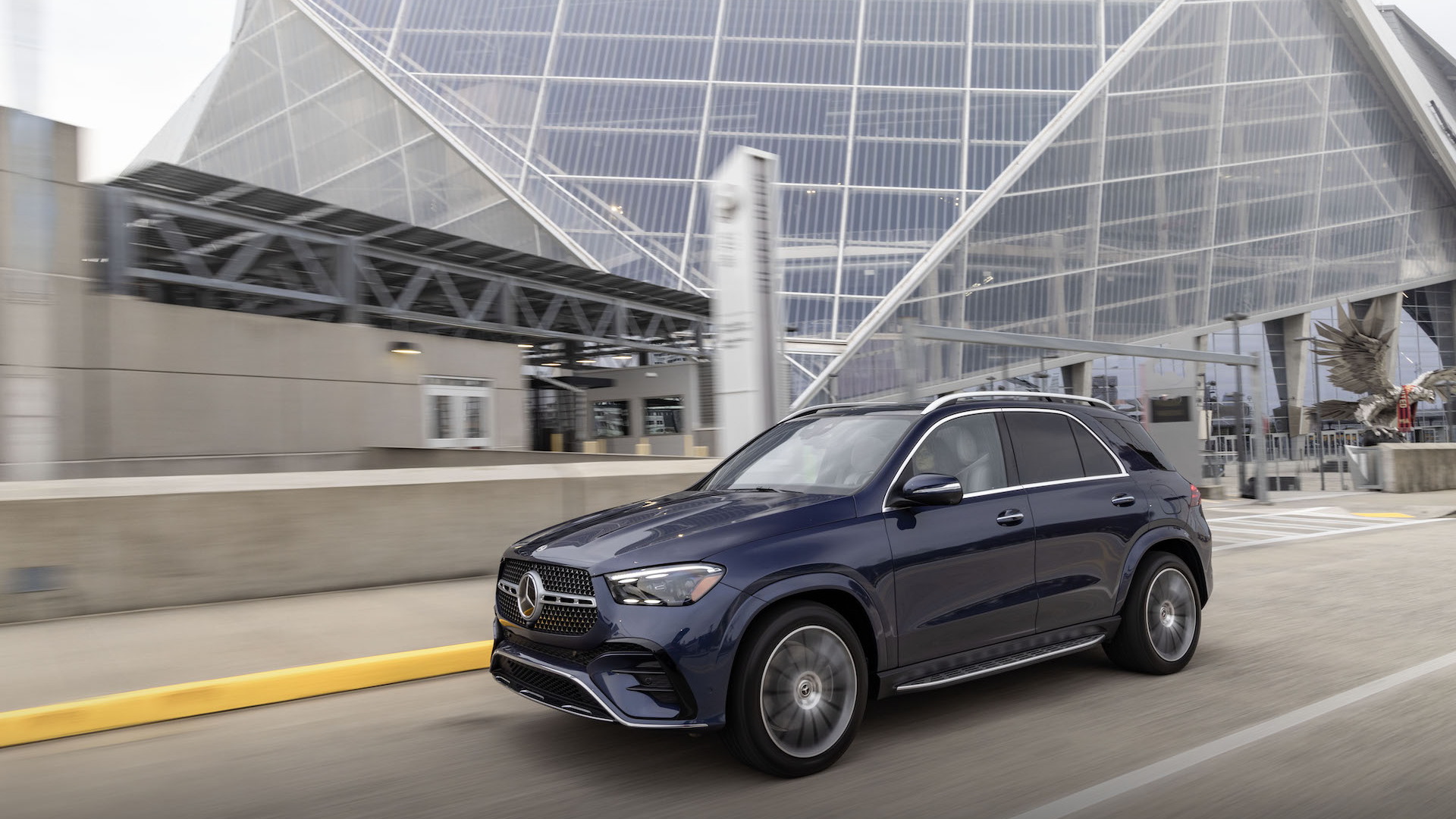BMW on Wednesday started production of hydrogen fuel cells that will eventually be used in the powertrains of a limited run of hydrogen-electric BMW X5 SUVs. The SUVs will be used for test and demonstration purposes, and won't be for sale.
A hydrogen-electric vehicle is essentially an EV that uses a hydrogen fuel cell to power the electric motor instead of a battery. The fuel cell combines hydrogen with oxygen from the air in a nearly emission-free process that creates the electricity, either directly or via an intermediate battery.
In the case of BMW's hydrogen-electric X5, which will go into production later this year as the BMW iX5 Hydrogen, the fuel cell sits up front and draws hydrogen from two tanks, one in the transmission tunnel and the other under the rear seat. The generated electricity is used to power an electric motor at the rear axle.
Electricity from the fuel cell also charges a small battery that helps power the motor during high-load situations. Total system output in this case is 368 hp. The fuel cell on its own generates a continuous output of 167 hp.
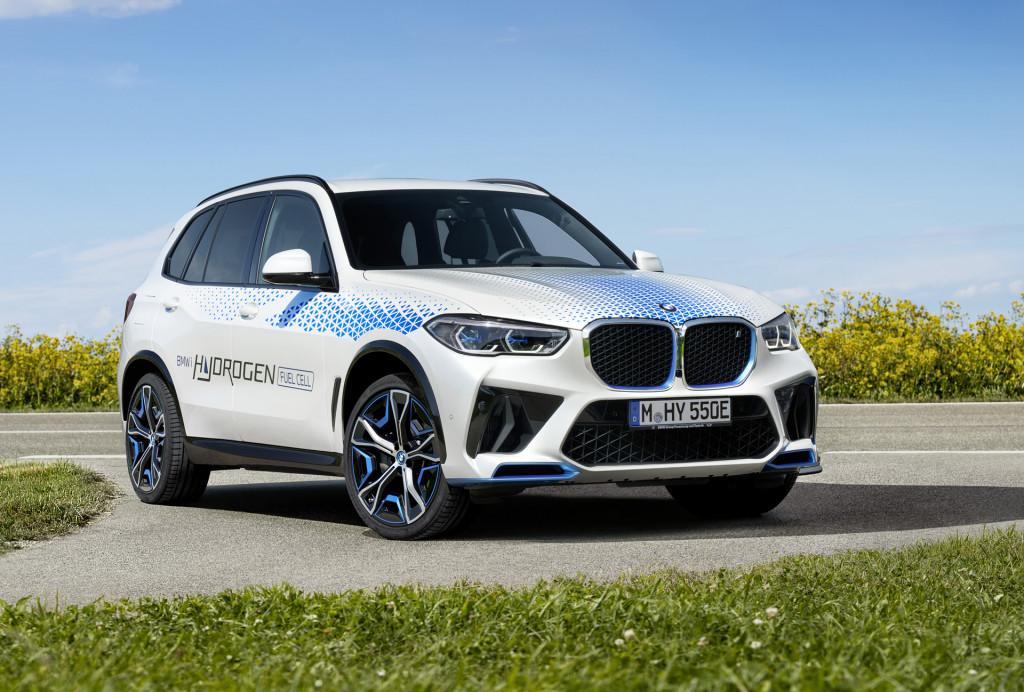
BMW iX5 Hydrogen prototype
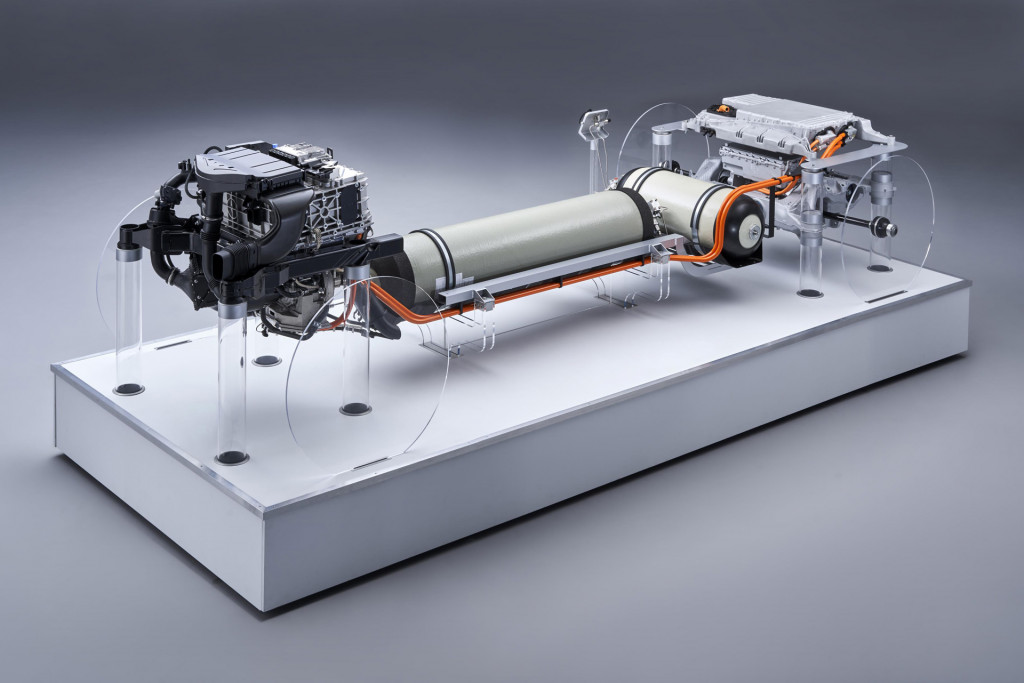
BMW hydrogen-electric powertrain
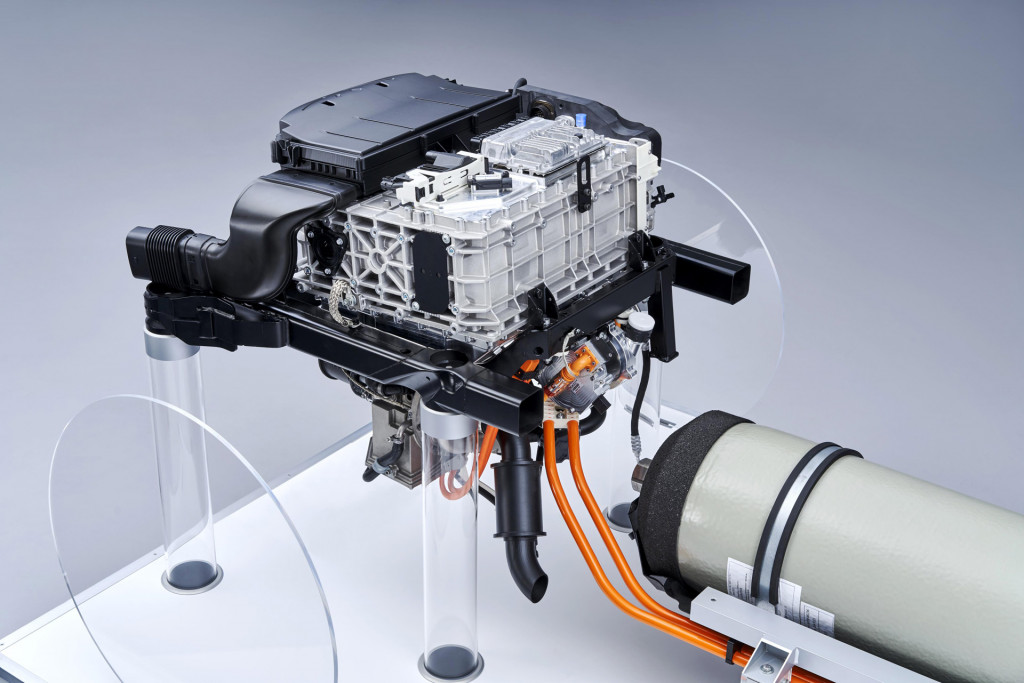
BMW hydrogen-electric powertrain
BMW doesn't plan to sell the iX5 Hydrogen to private customers. The automaker doesn't expect to have any hydrogen-electric vehicles at its dealerships until 2025, at the earliest. The date could be even later depending on the direction the market takes, BMW said.
Despite the start of production of hydrogen fuel cells, BMW remains committed to battery-electric vehicles as its main avenue for achieving carbon-neutral operations. BMW is developing the iX5 Hydrogen so it can be ready to supply customers with their powertrain of choice in the future, whether it be gasoline, diesel, battery electric, or hydrogen electric. In the case of hydrogen, BMW sees it as an opportunity for customers who favor long-distance driving.
“We think hydrogen-powered vehicles are ideally placed technologically to fit alongside battery-electric vehicles and complete the electric mobility picture,” Oliver Zipse, BMW Group's CEO, said in a statement. “By commencing small-scale production of fuel cells today, we are demonstrating the technical maturity of this type of drive system and underscoring its potential for the future.”
BMW isn't the only established automaker looking seriously at hydrogen as a future fuel source. Toyota already offers a second-generation Mirai hydrogen-electric vehicle in parts of the country where hydrogen is actually available, while the likes of Hyundai Motor Group, Daimler Trucks, and Volvo Trucks are looking at the fuel for zero-emission long-haul trucking.
